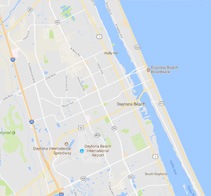News Archives
Contract Tracing Scams and How to Avoid Them.
Written by Kristen Schmutz
Belden Communications News
Shameka L. Walker, an attorney at the FTC, warns consumers of Contact Tracing scams as America is slowly opening its doors once again, after months of stay-at-home orders are being lifted across the country.
As an important part of the road to recovery, Contact Tracers from state health departments are trained to track anyone who may have been exposed to the virus. As we’ve seen before, some scammers are pretending to be contact tracers, to make a profit from all the confusion.
These scammers are after your money and/or Identity.
Walker explains that there is a way to tell the difference between a real contact tracer and a scammer.
A contact tracer might get in touch with individuals, to discuss results of a test you know you took, or because someone you’ve been in contact with tested positive. Depending on how your state has set up its program, legitimate contact tracers may call, email, text, or visit your home to collect information. They may ask you for:
- your name and address
- health information
- the names of places and people you have visited
Scammers will ask you to do more. Here are some things to do to protect yourself from fake contact tracers:
- Don’t pay a contact tracer. Anyone who says you need to pay is a scammer, plain and simple.
- Don’t give your Social Security number or financial information. There’s no reason for a legit contact tracer to need your Social Security number, bank account, or credit card number.
- Don’t share your immigration status. Legit contact tracers don’t need — and won’t ask for — this information.
- Don’t click on links or download anything sent from a contact tracer. Real tracers will only send you texts or emails that say they’ll be calling you — not ask you to click or download anything.
If you find yourself dealing with a fake contact tracer see if they have a way to make sure the person contacting, you are a real contact tracer. Otherwise, hang up, close the door, or don’t respond to, click on, or download anything that may be in an email or text.
Report fake contact tracers to your state and tell the FTC about it at FTC.gov/complaint.






